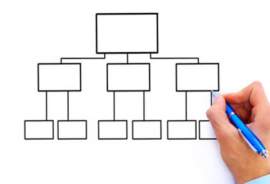
Quick Background to Elder Abuse

Next to young children, elderly individuals comprise the most vulnerable portion of the population. Although people should assume the responsibility of protecting these individuals, elders are commonly subjected to elder abuse. Elder abuse may encompass a wide range of harmful behavior, including physical brutality, emotional torment, sexual assault, and financial exploitation. Elder abuse law prohibits any behavior that is physically, emotionally, or financially damaging to an elderly individual. Nevertheless, elder abuse statistics ![]() indicate that hundreds of thousands of elders are subjected to these harmful practices every year. Despite its prevalence, most people know little about elder abuse and the devastating effects that it may have upon victims. The facts surrounding elder abuse are often troubling and shocking. However, it may be advantageous for an individual to arm himself/herself with knowledge regarding senior mistreatment and elder abuse law, especially if he/she has an elderly loved one. Contact an elder abuse lawyer for legal advice and assistance.
indicate that hundreds of thousands of elders are subjected to these harmful practices every year. Despite its prevalence, most people know little about elder abuse and the devastating effects that it may have upon victims. The facts surrounding elder abuse are often troubling and shocking. However, it may be advantageous for an individual to arm himself/herself with knowledge regarding senior mistreatment and elder abuse law, especially if he/she has an elderly loved one. Contact an elder abuse lawyer for legal advice and assistance.
Although elder abuse law punishes any form of senior maltreatment severely, this type of abuse continues to be widespread throughout the United States. Any individual may be a potential abuser![]() and it is often unsuspected individuals who are at fault. In most cases, individuals that are responsible for subjecting an elder to harmful mistreatment are the victim's children or are related to the victim in some other way. In situations such as this, the said abuse constitutes domestic violence
and it is often unsuspected individuals who are at fault. In most cases, individuals that are responsible for subjecting an elder to harmful mistreatment are the victim's children or are related to the victim in some other way. In situations such as this, the said abuse constitutes domestic violence![]() , as it is inflicted by a family member and usually occurs within the victim's home. Individuals should be wary when leaving an elderly loved one in the care of a nursing home, as a substantial portion of abuse cases occur in these facilities. It is important to understand that abuse does not only occur when an offender partakes in violent, damaging, or harmful behavior. Elder abuse law also recognizes neglect
, as it is inflicted by a family member and usually occurs within the victim's home. Individuals should be wary when leaving an elderly loved one in the care of a nursing home, as a substantial portion of abuse cases occur in these facilities. It is important to understand that abuse does not only occur when an offender partakes in violent, damaging, or harmful behavior. Elder abuse law also recognizes neglect![]() as a potentially fatal form of abuse, in which a perpetrator fails to provide an elder with the basic and essential resources necessary to survive. It is often difficult to understand how anyone could subject vulnerable and often defenseless individuals to this type of behavior. Many organizations struggle with the same consideration and have taken measures to help prevent elder abuse
as a potentially fatal form of abuse, in which a perpetrator fails to provide an elder with the basic and essential resources necessary to survive. It is often difficult to understand how anyone could subject vulnerable and often defenseless individuals to this type of behavior. Many organizations struggle with the same consideration and have taken measures to help prevent elder abuse![]() .
.
Elder abuse law has taken measures to prohibit individuals from inflicting abuse upon elderly individuals; however, if the public is unaware of this legislation, as well as the prevalence of elder abuse, little can be done to prevent this behavior. Like all individuals, elders maintain the right![]() to live without being subjected to abuse or exploitation. In order to help ensure that these rights are upheld, organizations such as the National Center on Elder Abuse
to live without being subjected to abuse or exploitation. In order to help ensure that these rights are upheld, organizations such as the National Center on Elder Abuse![]() have developed education programs in order to help increase public awareness about this matter. Through these programs, the organization seeks to inform the public of the risk factors, warning signs, and effects of elder abuse, thereby decreasing its prevalence. If more people understand how to recognize this abuse, more people will have the ability to take the proper measures to stop it. Therefore, it is important for individuals to familiarize themselves with this behavior, so that they may acquire the tools necessary to prevent further suffering of a vulnerable individual.
have developed education programs in order to help increase public awareness about this matter. Through these programs, the organization seeks to inform the public of the risk factors, warning signs, and effects of elder abuse, thereby decreasing its prevalence. If more people understand how to recognize this abuse, more people will have the ability to take the proper measures to stop it. Therefore, it is important for individuals to familiarize themselves with this behavior, so that they may acquire the tools necessary to prevent further suffering of a vulnerable individual.
NEXT: Understanding Elder Abuse Prevention





















